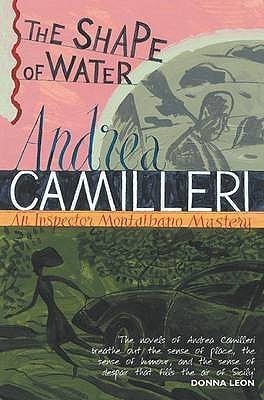
Ideal illness reading. I had flu, was confined to bed, and went through The Shape of Water in an evening of literary relief from fever, sweats and shivering. Readability also greatly helped by being funny even in translation.

Ideal illness reading. I had flu, was confined to bed, and went through The Shape of Water in an evening of literary relief from fever, sweats and shivering. Readability also greatly helped by being funny even in translation.
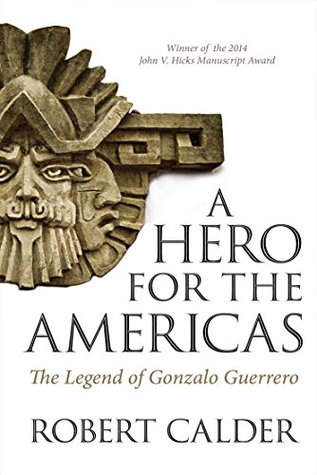
It’s not easy writing the biography of someone for whom virtually no historical evidence exists – I should know, because I’ve just done it with Warrior: A Life of War in Anglo-Saxon Britain. But at least with the warrior, we had a body. In trying to tell the life of Gonzalo Guerrero, Spanish conquistador turned Mayan guerilla, Calder doesn’t even have that: the body that, possibly, ends the story was never kept by the Spaniards who found it, a European in Mayan undress, killed by an arquebus ball. Indeed, the only direct testimony we have of Gonzalo’s life among the Maya was from a Spanish Franciscan, de Aguilar, who was himself captive for seven years. With de Aguilar’s escape, all direct testimony of Gonzalo ends: all that is left is legend and reconstruction. But while it is speculative, Calder does a very good job of constructing a plausible case for why a Spaniard might have decided to throw in his lot with the Mayans. The evidence that Gonzalo was the military and tactical genius directing their unexpectedly ferocious and skillful defence against the Spanish depends to a large degree, however, on the supposition that the Mayans could not have worked out their new tactics themselves. War is the great driver of innovation and I suspect the tactics of misdirection, subterfuge and ambush that the Mayans used against the Spanish on the Yucatan Peninsula were the results of their own reappraisal of what was necessary to try to stop the Spanish with their advantages in firepower. Calling on Gonzalo as the explanation does tend to smack of requiring a white man to explain why the natives were doing such a good job of stymying another lot of white men.
The book is very good on the wider context of the Spanish conquest of the Americas (although I could have done with a bit less of the post-modern obsession with competing narratives), and almost succeeds in bringing this most obscure of heroes to life.
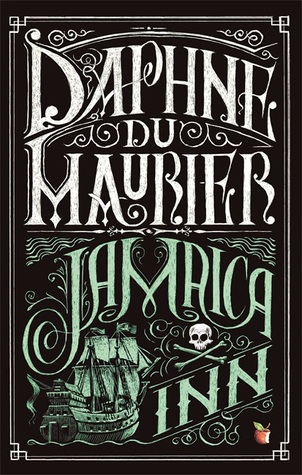
‘It was a dark and stormy night…’ A bit of a cliche, but then Daphne du Maurier trades on Gothic-novel cliches in Jamaica Inn, running with them and, in most cases, turning the dial up to 11: orphaned heroine, check; lonely, windswept location, check (the titular inn, atop Bodmin Moor); winds, storms, lightning, check; emotions as wild as the weather, check; a dastardly villain, check. But du Maurier gets away with it all through the sheer quality of her writing – the Moor is a character in its own right, and the weather is another – and the sheer fun she has in ramping it all up to the max and then keeping it there. Great fun and highly recommeded, particularly if you’re visiting the area.
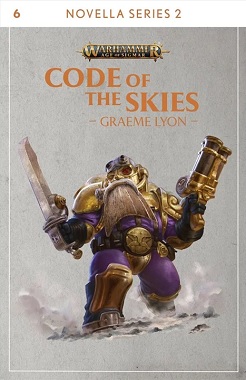
Code of the Skies is a thoroughly entertaining, picaresque romp through some of the vast geographical possibilities of the new(ish) Warhammer Age of Sigmar universe. Dwarves in flying boats. Floating mountains. More dwarves, or duardin as Black Library now insist on labelling short, stocky bearded characters (be they male or female) with a penchant for digging things up and holding grudges. Great fun.
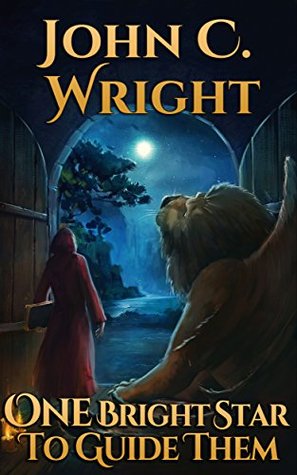
Suppose you had, as a child, gone through the wardrobe, or taken the door into the hollow hill, or dropped down the rabbit hole. But then you grew up. What would life be like as an adult? And how would you respond if the wardrobe door opened and a creature, an old friend, from your childhood life came to visit and said you were needed once more?
Alan Garner tried to answer this question in Boneland, where a grown-up Colin is still trying to come to terms with the loss of his sister. Boneland is – excepting the parallel story of the shamanic past – a raw, difficult but all too plausible take on the effect of faerie breaking through into this most mundane of civilisations. Now, John C. Wright looks at these difficulties in One Bright Star to Guide Them, a similarly short take on adults turning their backs on a thinly disguised Narnia-like encounter of their childhood. It doesn’t have the tortured depth of Boneland. This could be a good thing – there is no a priori reason that encounters with faerie should have this effect – but One Bright Star doesn’t really convincingly demonstrate why the other youngsters who went to the Otherland have left it so far behind and the English setting is really not very convincing. It is, nevertheless, readable (I went through it in one, feverish evening when confined to bed with flu) but it left little trace in my memory.
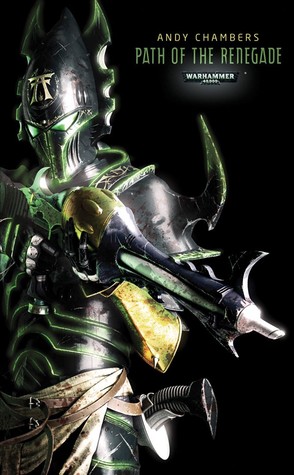
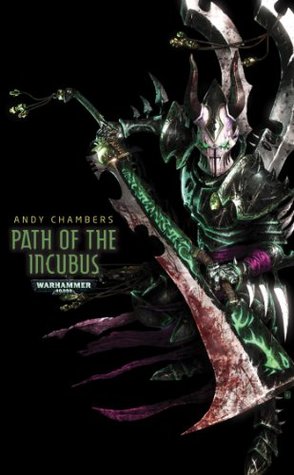
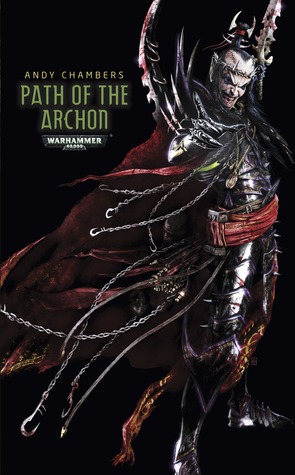
So, you’re a writer for hire and a publishing company, let’s say they’re called the Black Library, get in contact saying they want you to write a trilogy of novels.
‘I’ll see if I can fit you in,’ you say, when what you actually mean is, ‘Thank God, now I’m not going to have to moonlight as an Amazon delivery man.’
And then you get your brief.
Turns out, you’ve got to write a trilogy of novels in which the heroes are a bunch of psychopathic interstellar elves who don’t so much get off on causing pain and death but actually need to do so in order to stop themselves being dragged down the insatiable maw of the hermaphroditic, but mostly female, goddess of excess. These are interstellar elves who take seriously Aleister Crowley’s dictum, ‘Do what thou wilt shall be all of the law.’
So, how do you write about them? Do you take them seriously as creatures dedicated to pain and excess? Do you make them the monsters they truly are? Trying to think of an example in a human context, the obvious – Nazis, serial killers, etc – come to mind but a better example for the truly stomach churning nature of these elves of excess would be Ian Watkins, the child-molesting lead singer of the Lost Prophets, since he combined both the rock star glamour and the truly disgusting determination to plunge to the depths of what is possible in human depravity.
Andy Chambers, thankfully, decided not to go there. I don’t think I could have born a trilogy in the company of creatures as depraved as that. So, yes, they are Dark Eldar, sadists and masochists, but the torture is largely off page and the machinations brought to the fore, so the trilogy can be enjoyed as a ruthless political thriller, House of Cards in the stars. As such, Chambers creates a cast of amusingly ruthless characters, illuminates – as far as is possible – the Dark City, Commorragh, where the Dark Elves dwell, and takes us on thrilling journeys along the webway, the skein of twisted reality that slides between our world and the Warp, where the Dark Eldar hide from that thirsty god who desires their souls.
So, a thoroughly enjoyable romp among the stars in the company of pschyo elves, rather than a face plant into depravity. Phew!
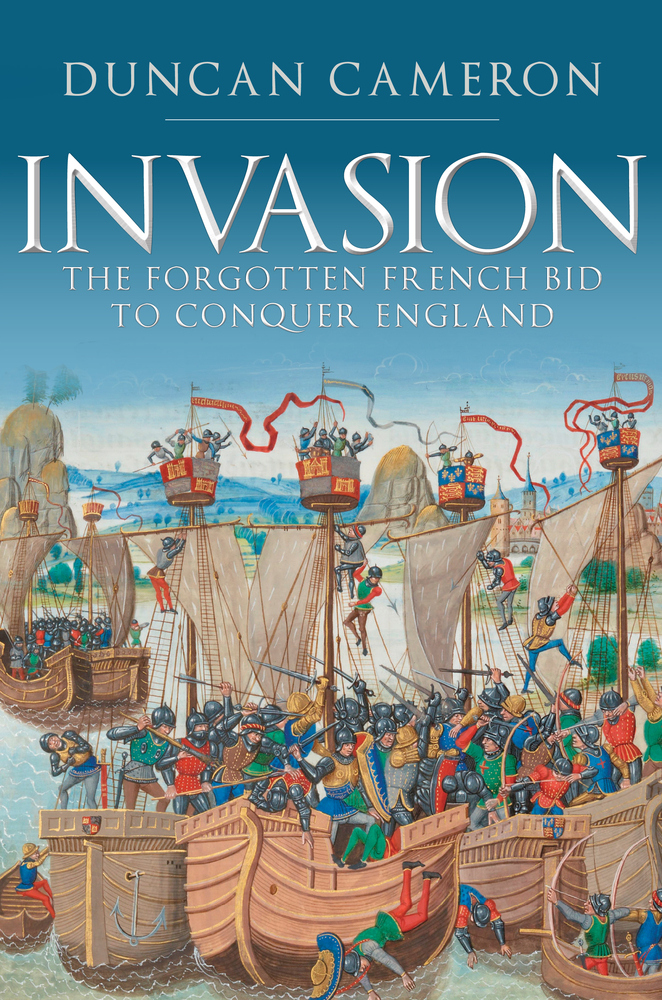
The author, Duncan Cameron, makes his bold claim right up there in the title and subtitle: Invasion: the forgotten French bid to conquer England. So the question arises, after 266 pages does Cameron succeed in convincing the reader that the attempts by the Valois kings to turn back English aggression during the successive reigns of Edward III (who ruled from 1327 to 1377) and Richard II (1377 to 1399) actually amounted to a serious attempt to invade and conquer England? Not really. Perhaps a more accurate title for the book, and one that indicates where its real strengths lie, would be By Fire and Sea: the unsung role of naval and marine warfare in the first decades of the Hundred Years’ War.
For it is certainly true that, bedazzled by the great Edwardian victories at the Battle of Crécy and the Siege of Calais, and the even more remarkable victory of Edward’s son, the Black Prince, at the Battle of Poitiers in 1356 which resulted in the capture of the French King, Jean II, and his youngest son Philip, contemporary chroniclers and later historians have tended to emphasise the land battles of these early decades of the Hundred Years War. While not surprising – Edward’s forces at the Battle of Neville’s Cross also managed to take captive King David II of Scotland, holding him captive and for ransom until 1357, meaning that for a year Edwardian England held the kings of France and Scotland captive – Cameron makes clear in his book that cross-Channel raiders played a much larger part in the French resistance to the destructive English raids, the chevauchée, which were a key element in Edward’s strategy, than has generally been acknowledged.
Faced with English armies burning and looting across northern France with the strategic aim of rendering the French incapable of fighting back, successive French kings authorised destructive counter chevauchée, employing mercenary crews of Genoan and Monegasque sailors and marines to man oared galleys as the spearheads for these amphibious raids on the ports of southern England. Some towns such as Winchelsea that had previously waxed wealthy on the proceeds of the lucrative wine trade with Gascony (a French province that, by the complicated laws of inheritance, was actually the personal property of Edward III) never recovered from the devastation caused by these combined naval attacks, the Genoans and Monegasque marines storming ashore, burning and looting, while French cogs, the mainstay of North Sea trade, waited at anchor to take all the looted goods home. The final French ‘invasion’ of England never actually happened, with the main invasion force defeated by weather and logistics, thus making the big reveal at the end something of a damp squib. But the journey there reveals a fascinating and little-known side to 14th-century warfare.
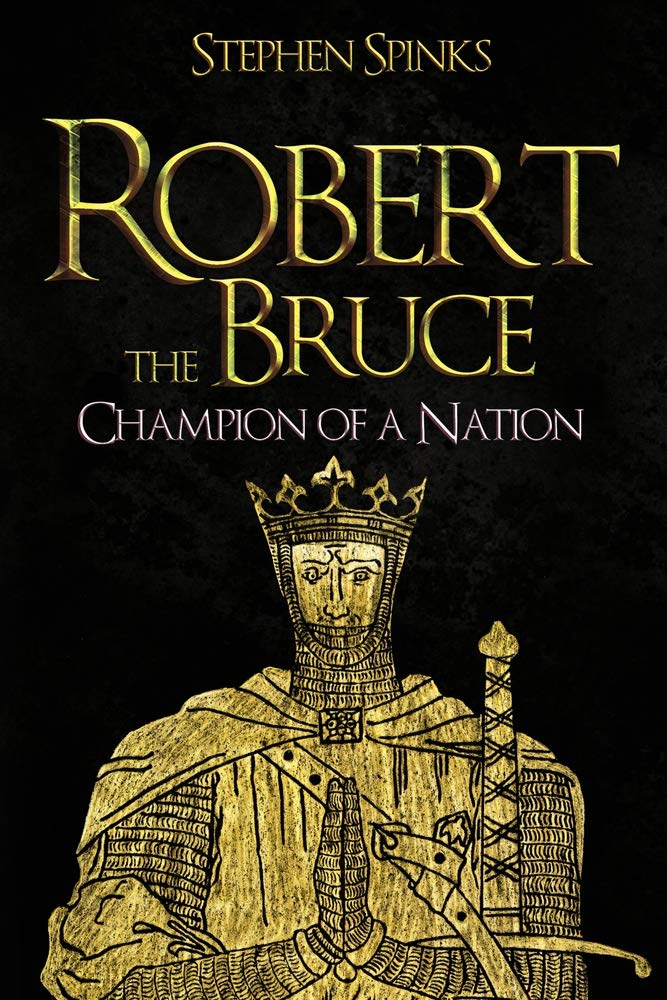
For most people in England, and not a few in Scotland, the name Robert the Bruce will evoke vague memories of Bannockburn, some even vaguer recollections of a story about a spider attempting to spin her web and, for those of a certain age, attempts to unpick the historical from the completely made up in the portrayal of Robert in Braveheart (no, he did not betray William Wallace and he probably did not fight against him). So the publication of this new biography of Robert by Stephen Spinks is a welcome chance to bring the man who ensured Scotland’s independence for 400 years out from the shadows of forgetting and Hollywood mythmaking.
Spinks has written a classic narrative history of Robert’s life, beginning with a necessary preamble into the historical situation leading up to his birth – during which the relations between Scottish and English crowns had been most amicable – and taking in the disaster that struck the Scottish succession in 1286 when Alexander III died, falling from a cliff, his sons having predeceased him, leaving as heir his three-year-old granddaughter, Margaret, the Maid of Norway. The crisis metastasized when Margaret herself died, aged seven, on her way back to Scotland. Into this vacuum, the Scots overmighty neighbour, Edward I, King of England, began to assert his own claim to be overlord of the Scots. This claim, which in Edward’s mind rapidly became his right, was based on Geoffrey of Monmouth’s medieval bestseller, the History of the Kings of Britain – a work of supposed history in which Geoffrey enthusiastically filled gaps with the products of his fertile imagination – that found the origin of the Scottish and English crowns in the sons of a refugee Trojan prince, Brutus. Edward based his claim on the wearer of the Scottish crown owing allegiance to the wearer of the English crown on account of the latter being descended from the eldest son of Brutus. Edward, one of the most formidable warriors of his time, set about claiming his birthright, inititiating the wars for Scottish independence that would continue for all of Robert’s adult life.
It was a vivid time of double crossing, battles and personalities who resound down the centuries and Spinks does an excellent job of bringing them all to life, from Edward’s bulldozer tenacity to Robert’s youthful ruthlessness and his maturing into a soldier, king and statesman of genius. By setting the scene carefully, Spinks makes the many changes of allegiance understandable within the context of the times, before leading up to the climactic Battle of Bannockburn, when Robert, seizing an opportunity gifted by new intelligence, switched from his preferred guerrilla tactics to a sudden, unexpected and devastating defeat for the English, now marching under the banner of Edward’s less gifted but still determined son, Edward II. The war did not end with Bannockburn, and Spinks maintains the narrative as he tells of Robert’s long, and eventually successful, struggle to have his claim as King of Scots recognised by the English and Christendom in general. Highly recommended.
My eldest son, Theo, is autistic. He has just turned 18 and, a year ago, we were all gloomily contemplating the statistic that only 16 per cent of autistic people are in paid employment. We’re not talking here about the small minority of autistic people who are non-verbal and require care, but the much larger group – one in a hundred of the population – who have unique thinking skills that could provide so much to employers and co-workers.
Thankfully, Theo was given a chance through the work of Ambitious About Autism, who arranged a literally life-changing internship for him at the Department of Transport. Theo’s three weeks working there showed him that he really could fit in to a work environment, bringing to it his own particular abilities, and following that internship he was able to secure a transport planning apprenticeship with Hounslow Council. As part of the work of Ambitious About Autism, Theo has appeared in the short film they made as part of their campaign to persuade employers to give autistic people a chance, starring alongside the Channel 4 broadcaster Jon Snow. The video is below. I could not be more proud of him. Please watch and share.
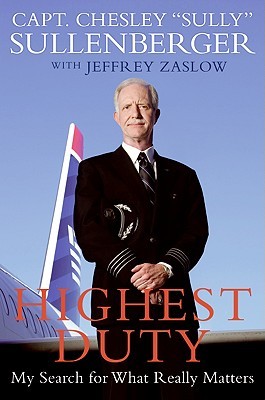
If it wasn’t for just over two and a half minutes, no one outside his immediate circle of family and colleagues would ever have heard of Captain Chesley Sullenberger and he would certainly not have written – with some help from Jeffrey Zaslow – an autobiography. In some ways, Sullenberger’s life is an exemplar of the ordinary, a man who does his job, raises his family and, in the normal course of events, is barely noticed outside of the circles he moves in. So it was interesting to see if an ordinary life could also be extraordinary enough to sustain a 350-page book. It was. I’m both pleased and relieved to be able to say that, since most of us lead lives that are no more – but also no less – remarkable than Sullenberger’s. There is a beauty, an accomplishment, in a normal life lived well that comes across strongly in this book: a man doing his job and raising his family. Of course, a sizeable chunk of the book looks at the events and aftermath of Flight 1549 but reading the book you realise that what Sullenberger says is true: he was able to deal with this unimaginable emergency because of all the building blocks of experience and decision that had gone into his life up to that point. An ordinary life? The sort of ordinary life that saves worlds.